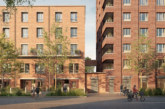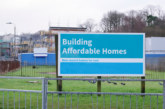
Major estate regeneration schemes in London involving any demolition of social homes must now have the backing of existing residents before they can receive City Hall funding, under new rules introduced by the Mayor Sadiq Khan.
The Mayor has introduced a new condition of City Hall funding which requires residents to have voted in favour of plans that involve the demolition of social homes. This is the first time such a condition has been introduced in the country.
Following publication of a draft version of the condition earlier this year, a consultation found 88% of respondents were supportive of the Mayor’s proposals to make ballots mandatory for schemes where any demolition of social homes is planned, with the aim of putting residents at the centre of decision-making and encouraging landlords to make plans in close consultation with them.
The final version of the condition further strengthens the ballot requirements from the draft version by:
- Setting out clearly how funding can be clawed back when a project is complete if it is found not to honour the original offer from the landlord;
- Establishing the voting age at 16 and being clear that an independent body would be expected to undertake resident ballots; and
- Making clear even those schemes that have had a ballot in the past must undertake a new ballot on a landlord offer which must be honoured to receive and keep Mayoral funding.
The final version of the new funding condition works alongside the Mayor’s planning rules – as set out in ‘Better Homes for Local People’, his good practice guide to estate regeneration. The planning rules require any social housing demolished to be replaced like-for-like, and for affordable housing to be increased wherever possible. At any one time there are estimated to be around 35 estate regeneration schemes underway in London involving funding from City Hall, and in future new schemes will require a positive ballot to benefit from the Mayor agreeing such financial support.
The Mayor of London, Sadiq Khan, commented: “When estate regeneration is done well, it can improve the lives of existing residents as well as building more social housing. But that has not always been the case. Anyone drawing up plans for estate regeneration must involve local people and must consider what impact their plans will have on people who live there now. That is why, from now on, City Hall funding for significant estate regeneration schemes involving any demolition of social homes will, for the first time, only be approved where there has been a positive residents’ ballot.”
The Mayor also wants councils and housing associations to commit to balloting residents for schemes where his funding is not involved and where he has no power to insist on one. Newly elected Mayor of Lewisham, Damien Egan, said: “Balloting residents on estate redevelopments means that existing communities are truly at the heart of changes in their area. Lewisham will be balloting residents as part of our ambitious programme to build new social and genuinely affordable homes.”
The new Leader of Enfield Council Cllr Nesil Caliskan, added: “Putting residents at the heart of estate renewal is a sensible and genuinely engaging way of making sure future developments meet the needs of the people who are going to live on them. We wholeheartedly support these proposals
“We have already asked residents on the Alma Estate their views on the £315m refurbishment of the estate and we are now proceeding rapidly with the project. We also have plans for future consultations on other major developments in our borough.”
Furthermore, the draft London Plan sets out that there should be no net loss of social housing in estate regeneration schemes and an increase in affordable homes wherever possible.








